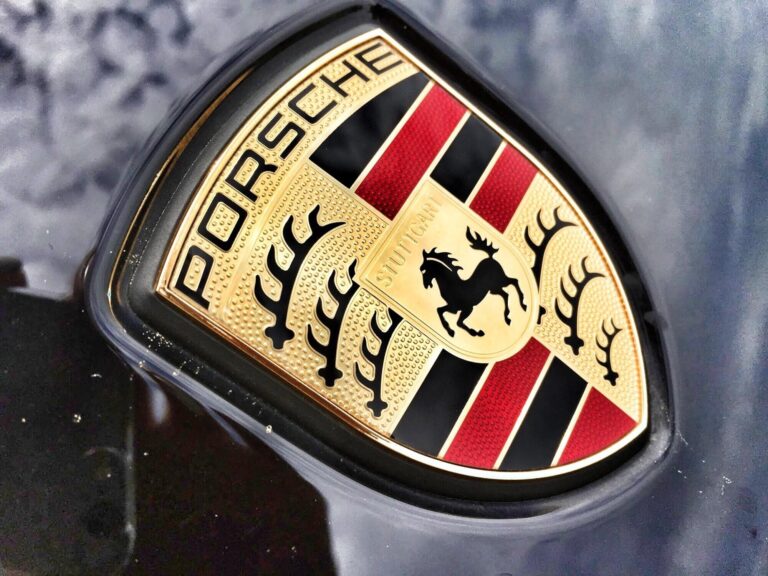The Truth About E621 Halal or Haram?
Are you someone who loves food and is always on the lookout for new flavors? Have you ever wondered about the infamous E621, commonly known as MSG, and its status in the realm of Halal and Haram? Join us as we delve into the controversial topic of whether E621 is permissible or forbidden in Islam. Let’s uncover the truth behind this seasoning that has sparked countless debates among Muslims around the world!
What is E621 (MSG)?
E621, also known as monosodium glutamate (MSG), is a flavor enhancer commonly used in the food industry to add a savory taste to dishes. It is derived from glutamic acid, an amino acid found naturally in foods like tomatoes and cheese. MSG works by stimulating our taste buds, making food more appetizing and satisfying.
This white crystalline powder has been used for decades to elevate the flavor of soups, sauces, snacks, and many other culinary creations. Despite its widespread use in Asian cuisine and beyond, E621 has garnered mixed reviews due to concerns about its potential health effects when consumed in large quantities.
Some people report experiencing symptoms like headaches or nausea after consuming foods containing MSG. However, scientific studies have not conclusively proven a direct link between moderate MSG intake and adverse health effects for the general population.
E621 Halal or Haram in Islam
E621, commonly known as MSG, has sparked debates within the Muslim community regarding its halal or haram status. In Islam, the consumption of food plays a significant role in daily life and adhering to dietary laws is crucial for many believers. When it comes to E621, opinions vary widely among scholars and individuals.
Some argue that since MSG is a chemical additive with no clear origin from halal sources, it should be avoided by Muslims seeking to follow strict dietary guidelines. On the other hand, some scholars suggest that as long as E621 is derived from permissible sources and used in moderation, it may not necessarily be considered haram.
The issue becomes more complex when considering the potential health implications of consuming MSG. While some studies link excessive MSG intake to adverse health effects, others claim that in small amounts, it poses no significant harm.
Whether E621 is deemed halal or haram in Islam may depend on individual interpretation and adherence to personal beliefs and practices surrounding food consumption.
Evidence Regarding E621
E621, also known as monosodium glutamate (MSG), has long been a subject of debate in the food industry. When it comes to determining whether E621 is halal or haram in Islam, one key aspect to consider is the source of the MSG.
Some argue that since MSG can be derived from both plant and animal sources, its halal status depends on where it originates from. However, others believe that since MSG is a chemically synthesized compound, its origin may not necessarily impact its permissibility.
In terms of evidence regarding E621 being halal or haram, there are differing opinions among Islamic scholars. While some maintain that if sourced from permissible ingredients and through lawful means, it can be considered halal; others raise concerns about potential harmful effects associated with consuming MSG.
As Muslims navigate the complexities surrounding E621 consumption, seeking guidance from religious authorities and making informed choices based on personal beliefs and health considerations are essential aspects to consider when addressing this issue.
Safety of Consuming E621 for Muslims
When it comes to the safety of consuming E621, commonly known as MSG, there are mixed opinions within the Muslim community. Some believe that as long as it is derived from permissible sources and used in moderation, it may be acceptable for consumption. On the other hand, there are concerns about potential health risks associated with excessive intake of MSG.
For Muslims who choose to consume products containing E621, it is essential to be mindful of reading food labels carefully and being aware of where this additive may be present. Moderation and balance in all aspects of diet play a significant role in maintaining good health according to Islamic teachings.
As with any food additive or ingredient, individual reactions may vary. It is recommended for Muslims to consult with healthcare professionals or religious scholars if they have specific concerns about consuming E621 and its potential effects on their well-being.
Exploring Different Perspectives
When it comes to the topic of E621 being halal or haram in Islam, different perspectives emerge. Some argue that since MSG is a naturally occurring substance found in many foods like tomatoes and cheese, it should be permissible for consumption. On the other hand, there are those who believe that the manufacturing process of MSG involves chemical manipulation which could potentially make it impermissible.
Another perspective considers the intention behind consuming food containing E621. If the intention is solely for flavor enhancement without any harmful effects on health, then some scholars suggest it could be deemed acceptable. However, others raise concerns about potential health risks associated with excessive consumption of MSG.
It’s important to recognize that interpretations may vary among individuals based on their understanding of Islamic teachings and dietary laws. Exploring these diverse viewpoints can lead to a better understanding of this complex issue surrounding E621 in Islamic dietary practices.
Conclusion
As we’ve delved into the debate surrounding E621, it becomes apparent that differing opinions exist regarding its consumption. While some argue for its safety and flavor-enhancing properties, others raise concerns about potential health risks associated with MSG.
It’s clear that the issue of whether E621 is halal or haram in Islam is not a straightforward one, as interpretations vary among scholars and individuals. The evidence presented offers insight into both sides of the argument, leaving room for personal interpretation and decision-making.
When considering whether to include E621 in your diet as a Muslim, it may be beneficial to weigh the information available carefully. Understanding your own beliefs and values can guide you in making an informed choice that aligns with your dietary preferences.
In navigating discussions around E621 and its permissibility within Islamic guidelines, it’s essential to respect diverse viewpoints while also prioritizing your own well-being. By staying informed and open-minded, you can make choices that reflect your values and promote a balanced approach to nutrition.
FAQs
Is E621 (MSG) halal or haram in Islam?
The debate around the permissibility of consuming E621 (MSG) within Islamic dietary laws continues to spark discussions among scholars and followers. While some argue that it is permissible due to its derived nature from natural sources, others raise concerns about its potential harm to health.
What evidence supports the stance on E621 being halal or haram?
Evidence regarding the status of E621 in Islam varies, with interpretations stemming from different schools of thought and individual opinions. Some point towards the lack of explicit prohibition in religious texts as a justification for its consumption, while others emphasize the precautionary principle when it comes to questionable ingredients.
How safe is it for Muslims to consume products containing E621?
The safety aspect of consuming products containing E621 remains a crucial consideration for Muslims seeking clarity on whether they should include such items in their diet. Understanding potential health risks associated with excessive MSG intake can help individuals make informed choices aligned with their beliefs.
In exploring different perspectives on this matter, it becomes evident that diverse opinions exist within the Muslim community regarding the permissibility and implications of consuming foods containing E621. Each individual must weigh these considerations against their own values and beliefs when making decisions about their dietary practices.
As discussions surrounding the use of additives like MSG continue to evolve, staying informed about both religious teachings and scientific findings can empower individuals to navigate such complexities effectively. By engaging in open dialogue and seeking knowledge from reliable sources, Muslims can make conscientious choices that align with their faith while prioritizing their well-being.
Remember always; your health is a trust given by Allah (SWT), so prioritize it wisely as you consider what goes into your body according to Islamic guidelines.







